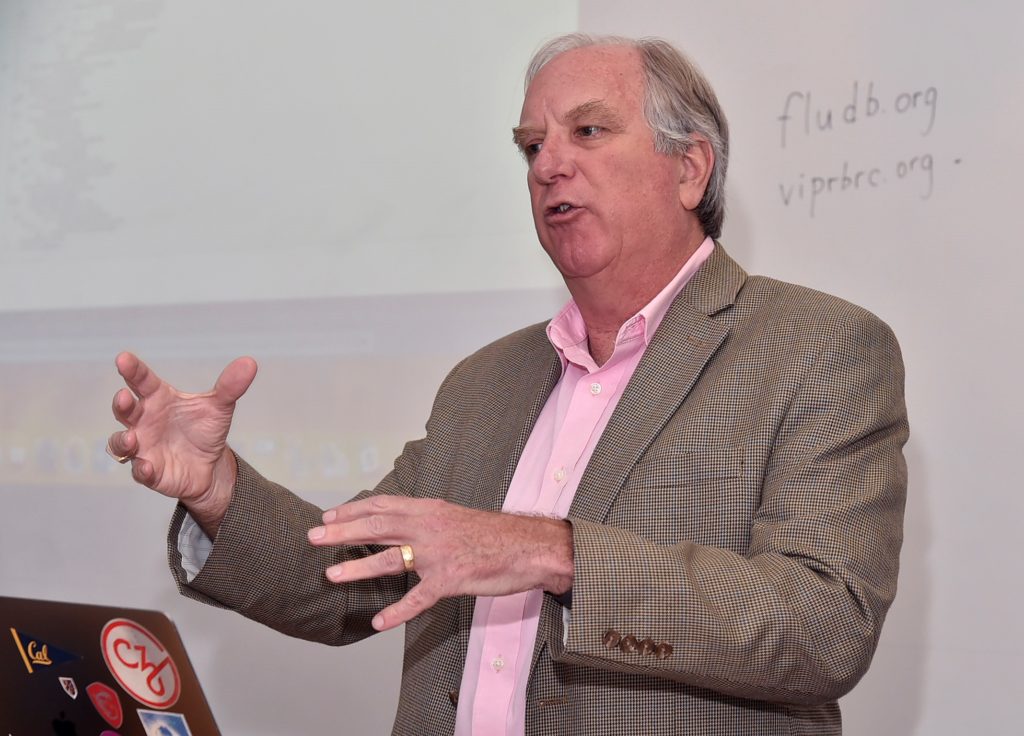
The Biomedical Research Center (BRC) at Qatar University (QU) in coordination with the Ministry of Public Health (MOPH) and Hamad Medical Corporation (HMC), organized and hosted a workshop on “Bioinformatics and Laboratory Investigations of Emerging Pathogens and Epidemics,” which was supported by Qatar National Research Fund (QNRF). The workshop aimed at introducing medical and public health professionals to the new bioinformatics approaches that are used in outbreak investigations of emerging and re-emerging pathogens including viral and bacterial pathogens.
The connectedness of populations across the globe through international travel and trade, along with the increase of newly emerging pathogens, has led to the rapid spread of diseases. This is illustrated by the SARS-coronavirus outbreak in 2003 and the global spread of pandemic H1N1 in 2009. To mitigate the risks of emerging diseases for public and veterinary sectors, coordinated and collaborative approaches across domains of infectious diseases (ID) are essential. With the above observations comes the notion that preparedness planning is needed to ensure adequate response to emerging ID cases or outbreaks.
Qatar faces several challenges with respect to preparedness for emerging ID threatening veterinary and human health. Qatar also has a heavy influx of foreign labor with expatriates constituting 94% of a total labor force of 1.3 million people and originating from countries in Africa and Asia endemic for zoonoses. These increasing demands will go hand-in-hand with increased risks for introduction of zoonoses into the country, which raises the alarm about the importance of preparedness planning, and building the knowledge to ensure effective responses to emerging infectious disease cases or outbreaks.
This event hosted internationally renowned experts from the J. Craig Venter Institute (JCVI), which is a world leader in genomic and bioinformatics research. The workshop was a Category 1 – Accredited Group Learning Activity as defined by the Qatar Council for Healthcare Practitioners Accreditation Department and qualified for a maximum of 30 credit hours for all topics. The event drew the participation of over 35 health care professionals from different institutes in Qatar. The opening session was delivered by Prof. Asma Al-Thani, QU College of Health Sciences (CHS) Dean and BRC Director, followed by QNRF representative talk by
During the four-day event, participants attended different theoretical sessions, followed by hands-on





